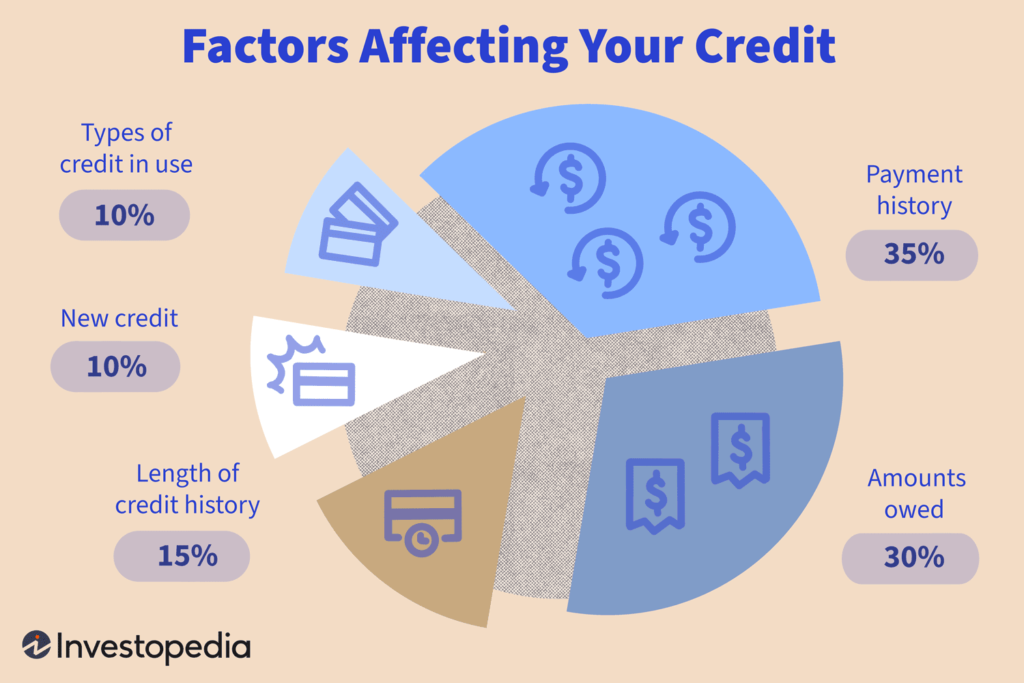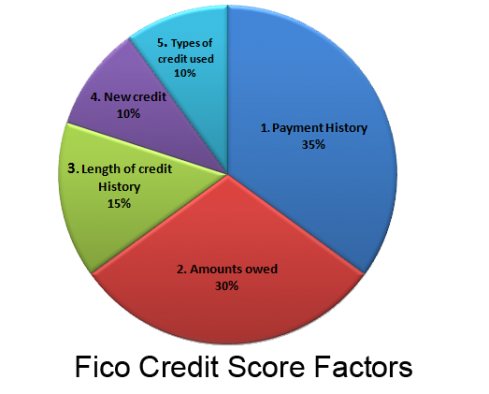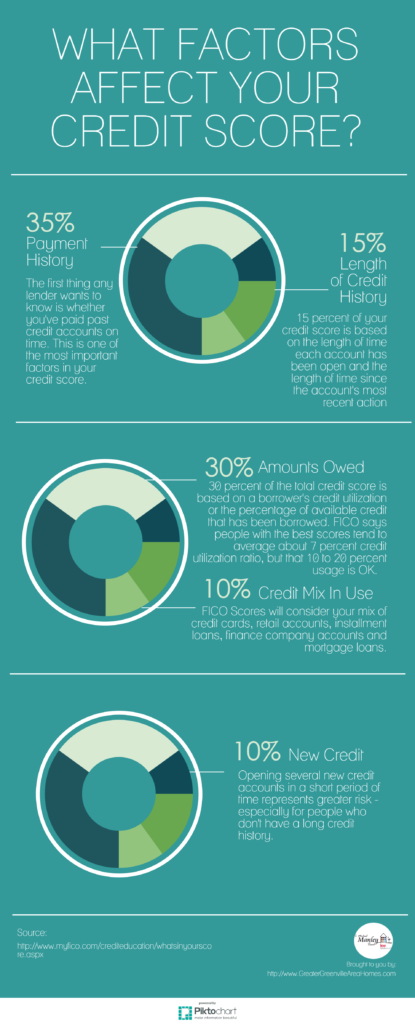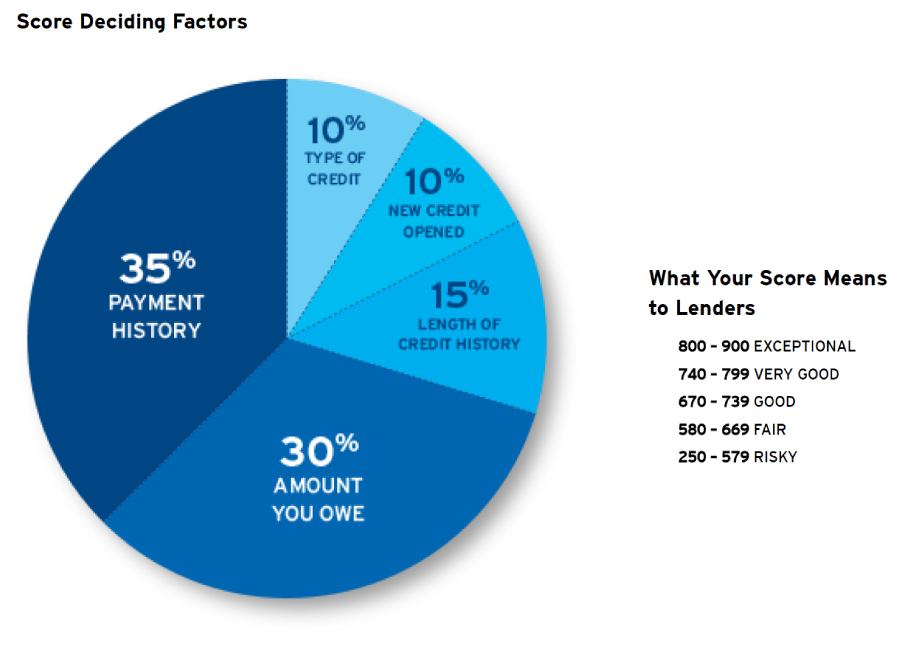In this article, we will discuss the various factors that can affect your credit score and provide you with practical tips on how to address them. You will learn about the importance of payment history, credit utilization, length of credit history, types of credit, and new credit. By understanding these factors and taking the necessary steps, you can positively impact your credit score and improve your financial well-being.
Understanding Credit Scores
What is a credit score?
A credit score is a numerical representation of an individual’s creditworthiness. It is a three-digit number that helps lenders and financial institutions assess the risk of lending money to someone. Credit scores are calculated based on various factors, including payment history, credit utilization, length of credit history, credit diversification, and credit inquiries.
Why is my credit score important?
Your credit score is important because it affects your ability to borrow money. Lenders use your credit score to determine whether to approve your loan application and what interest rate to offer you. A higher credit score indicates that you are more likely to repay your debts, while a lower credit score suggests a higher risk of defaulting on your payments. Therefore, it is essential to understand the factors that affect your credit score and how to address any negative factors.
Factors That Affect Credit Scores
Payment history
Your payment history has the most significant impact on your credit score. Timely payments can have a positive effect, while late payments or defaults can significantly lower your score. It is crucial to make all your payments on time and in full to maintain a good credit score. If you have missed payments in the past, work towards improving this aspect of your credit history.
Credit utilization
Credit utilization refers to the percentage of your available credit limit that you are currently using. A high credit utilization ratio can negatively impact your credit score. It is recommended to keep your credit utilization below 30% to maintain a healthy credit score. Paying down your credit card balances and managing your overall debt can help improve your credit utilization and, in turn, your credit score.
Length of credit history
The length of your credit history also plays a role in determining your credit score. Lenders prefer borrowers with a longer credit history as it provides them with more information about your financial habits and repayment behavior. If you are new to credit, consider opening a credit card or applying for a small loan to establish a credit history. However, it is essential to use credit responsibly and make timely payments.
Credit diversification
Having a mix of different types of credit can positively impact your credit score. Lenders like to see that you can handle various types of credit responsibly. This could include having a combination of credit cards, loans, and mortgages. However, it is essential not to open new credit accounts unnecessarily, as this can create additional debt and potentially lower your credit score.
Credit inquiries
When you apply for new credit, the lender typically checks your credit report, resulting in a hard inquiry. Too many hard inquiries within a short period can negatively impact your credit score, as it suggests that you are actively seeking credit. It is important to be mindful of the number of credit inquiries you have and only apply for credit when necessary.

This image is property of www.investopedia.com.
How to Address Negative Factors
Pay bills on time
The first step in addressing negative factors that affect your credit score is to make sure you pay all your bills on time. Late payments can have a significant impact on your credit score, so it is essential to prioritize paying your bills by their due dates. Consider setting up automatic payments or reminders to help you stay on track.
Reduce credit card balances
If you have high credit card balances, it can negatively affect your credit score. Aim to pay down your balances and keep your credit utilization below 30%. You can achieve this by making larger payments or spreading out your credit card purchases over multiple billing cycles. It may take time, but reducing your credit card balances can have a positive impact on your credit score.
Maintain a long credit history
While you cannot change the length of your credit history overnight, you can start building a positive credit history now. The longer your credit history, the more data lenders have to assess your creditworthiness. Be consistent with making on-time payments and avoid closing old credit accounts, as this can shorten your credit history.
Diversify your credit
Having a mix of different types of credit can help improve your credit score. Consider applying for a small loan or a new credit card if you do not already have one. However, make sure you can manage the additional credit responsibly and make all your payments on time.
Limit credit inquiries
Be cautious about applying for new credit, as multiple credit inquiries within a short period can lower your credit score. Only apply for credit when necessary, and do your research beforehand to ensure you meet the eligibility criteria. Limiting credit inquiries can help maintain a healthy credit score.
Monitoring and Improving Credit Scores
Obtain regular credit reports
It is essential to obtain your credit reports regularly to monitor your credit score and review your credit history. You are entitled to one free credit report per year from each of the major credit reporting agencies: Experian, TransUnion, and Equifax. Review your reports for any errors or discrepancies that may be negatively impacting your credit score.
Check for inaccuracies
When reviewing your credit reports, carefully check for any inaccuracies. Common errors can include outdated personal information, incorrect account balances, or accounts that do not belong to you. If you find any inaccuracies, you can dispute them with the credit reporting agencies to have them corrected or removed from your credit report.
Dispute errors
If you find any errors on your credit report, it is crucial to dispute them promptly. You can submit a dispute letter to the credit reporting agencies, providing them with the necessary evidence to support your claim. The credit reporting agencies have a legal obligation to investigate your dispute within 30 days and provide you with a response.
Work with creditors
If you are struggling with your debts, it is important to communicate with your creditors. They may be willing to work with you to develop a repayment plan or modify the terms of your loan. Keeping an open line of communication with your creditors can help you address any negative factors in your credit history and avoid further damage to your credit score.
Establish positive credit habits
Building and maintaining a good credit score is a long-term process. Establishing positive credit habits, such as making all your payments on time, keeping your credit utilization low, and regularly monitoring your credit reports, can help improve and maintain a healthy credit score. It is important to be patient and consistent in your efforts to address any negative factors and improve your credit score over time.

This image is property of beehive.org.
The Benefits of a Good Credit Score
Lower interest rates
Having a good credit score can help you qualify for lower interest rates on loans and credit cards. This can result in significant savings over time, as you will be paying less in interest charges.
Access to credit
A good credit score opens up opportunities for you to access credit when needed. Whether you are applying for a mortgage, car loan, or credit card, having a good credit score increases your chances of approval and favorable terms.
Higher credit limits
Lenders are more likely to offer higher credit limits to individuals with good credit scores. This can provide you with more flexibility in managing your finances and making larger purchases.
Better loan terms and insurance rates
Having a good credit score can lead to better loan terms, such as lower down payment requirements and reduced fees. Additionally, insurance companies may offer lower premiums to individuals with good credit scores, as they are considered less risky to insure.
The Effects of a Poor Credit Score
Difficulty obtaining credit
Individuals with poor credit scores may face challenges when trying to obtain credit. Lenders may be hesitant to approve loan applications or may charge higher interest rates and fees to mitigate the perceived risk.
Higher interest rates
A poor credit score can result in higher interest rates on loans and credit cards. This can significantly increase the cost of borrowing and make it more difficult to manage debt.
Limited borrowing options
With a poor credit score, your borrowing options may be limited. You may only qualify for loans with unfavorable terms or may be required to provide collateral or a cosigner to secure the loan.
Trouble renting or buying a home
Many landlords and property managers conduct credit checks as part of the rental application process. A poor credit score can make it challenging to secure rental housing. Additionally, when purchasing a home, a poor credit score can result in higher interest rates and mortgage approval denials.

This image is property of bt-wpstatic.freetls.fastly.net.
Common Misconceptions About Credit Scores
Closing credit cards improves scores
Contrary to popular belief, closing credit cards can actually harm your credit score. Closing a credit card reduces your available credit, which can increase your credit utilization ratio. Additionally, closing older credit cards can shorten your credit history, negatively impacting your credit score. It is generally better to keep your credit cards open, even if you do not use them regularly, to maintain a healthy credit profile.
Checking credit reports lowers scores
Checking your credit reports or credit score does not harm your credit score. When you check your own credit, it is considered a soft inquiry and does not impact your credit score. However, hard inquiries made by lenders when you apply for credit can lower your credit score temporarily.
Income affects credit scores
Your income does not directly affect your credit score. Credit scores are based on your credit history and how you manage your debt, not your income level. However, lenders may consider your income when determining your eligibility for credit, as it helps them assess your ability to repay the loan.
The Importance of Financial Responsibility
Budgeting and managing expenses
Developing a budget and managing your expenses is crucial for maintaining good financial health. By tracking your income and expenses, you can ensure that you are living within your means and have enough money to cover your obligations.
Saving and investing
Saving and investing are important financial habits that can help secure your future. Setting aside money for emergencies and long-term goals can provide financial stability and peace of mind. Additionally, investing your savings wisely can help grow your wealth over time.
Avoiding unnecessary debt
Taking on unnecessary debt can quickly lead to financial difficulties. It is important to borrow responsibly and only take on debt for essential expenses or investments. Avoiding unnecessary debt can help maintain a healthy credit score and financial well-being.
Paying bills on time
Paying your bills on time is an essential habit for maintaining good credit and financial responsibility. Late payments can impact your credit score and result in additional fees and penalties. Make it a priority to pay your bills by their due dates or set up automatic payments to ensure timely payments.

This image is property of prosperopedia.com.
Seeking Professional Help
Credit counseling services
If you are struggling with managing your debts or improving your credit score, credit counseling services can provide guidance and assistance. Credit counselors can help you develop a personalized plan to address your financial challenges and improve your creditworthiness.
Debt consolidation programs
Debt consolidation programs can help individuals with multiple debts simplify their repayment process. These programs combine multiple debts into one loan with a lower interest rate, making it easier to manage and pay off debt. However, it is essential to research and choose a reputable consolidation program to avoid falling into further financial trouble.
Conclusion
Taking control of your credit and working towards a better credit score is a vital step in securing your financial future. By understanding the factors that affect your credit score and addressing any negative factors, you can improve your creditworthiness and gain access to better financial opportunities. Remember to pay your bills on time, reduce credit card balances, maintain a long credit history, diversify your credit, and limit credit inquiries. Monitoring your credit score regularly, disputing errors, and establishing positive credit habits will help you maintain a healthy credit profile. By practicing financial responsibility, seeking professional help when needed, and working towards a better credit score, you can secure a brighter financial future for yourself.

This image is property of www.myfico.com.
